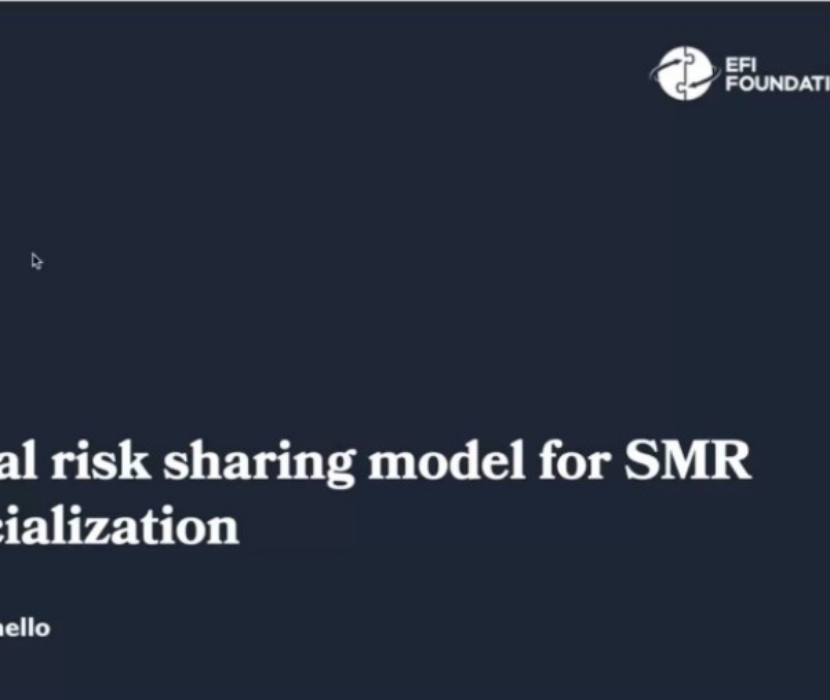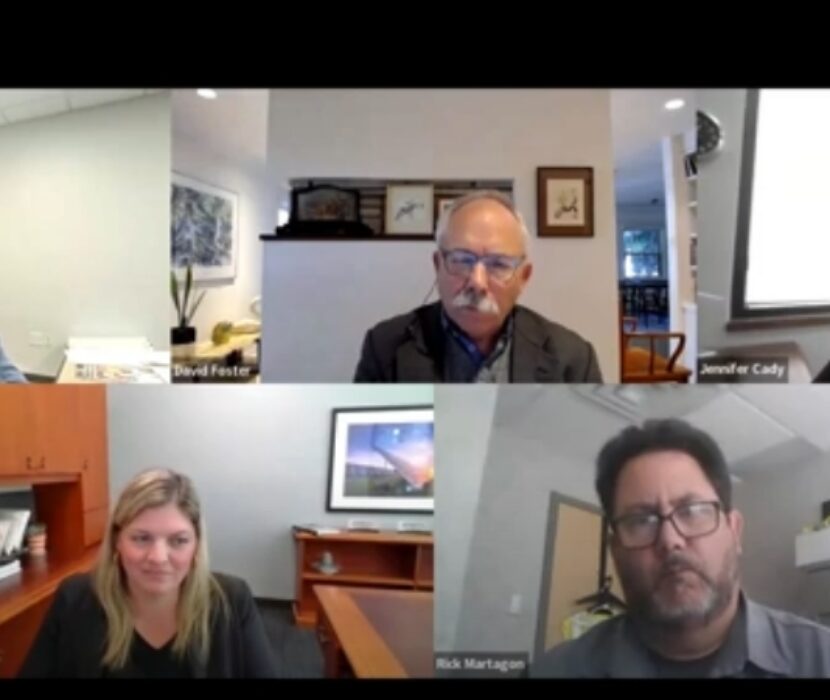
On Wednesday, September 15th, 2021, EFI founder and CEO Ernest Moniz paid tribute to the late Ted Halstead, a renowned policy entrepreneur, alongside Christine Todd Whitman, former governor of New Jersey and EPA administrator, and Larry Summers, former Director of the National Economic Council, at the inaugural event in the Ted Halstead Climate Conversation Series, titled “U.S. Choices and Opportunities in a Critical Season for Climate Policy,” and hosted by the Climate Leadership Council and New America. After opening remarks and the premiere of a tribute video to Halstead, Moniz, Todd Whitman, and Summers engaged in a discussion about COP26 (the twenty-sixth annual international summit to negotiate climate change solutions), the economic impacts of climate change, and the capacity for bipartisan collaboration on climate solutions. The discussion was moderated by Climate Leadership Council CEO Greg Bertelsen.
Described by his colleagues as having charisma, magnetism, and charm, Ted Halstead was a persuasive visionary equipped with the ability to actualize his visions and change the world; as Bertelsen put it, “Ted was a force of nature.” He founded New America, a think tank aiming to restore productive politics in the U.S., and the Climate Leadership Council, a bipartisan nonprofit dedicated to climate solutions based on its carbon dividends plan with a focus on forging a bipartisan solution to climate change. His tribute video can be watched here.
We are pretty much exactly at the amount of emission today that we had in 1992.
Ernest Moniz
While discussing expectations for success at COP26 in Glasgow this November, thirteenth Secretary of Energy Ernest Moniz noted that this year marks the halfway point between the 1992 United Nations Rio de Janeiro Earth Summit, a significant milestone for international agreement to address climate change, and midcentury, when international emissions ambitions are set to reach net-zero. Unfortunately, “we are pretty much exactly at the amount of emission today that we had in 1992,” Moniz lamented. He outlined three pathways necessary to reach net-zero emissions by 2050, the ambition articulated at COP21 when the 2015 Paris Agreement was adopted by 196 parties:
1. To decarbonize electricity and increase electrification of other sectors.
2. To identify and utilize a low carbon fuel, such as hydrogen.
3. To acknowledge and commit to removing carbon from the atmosphere and oceans.
Crucially, Moniz emphasized that these steps must be addressed in a pragmatic, realistic way and in a manner that produces legitimate aid to the developing world, a population vital to fighting climate change and directly facing some of its worst effects. Unlike the agreements in Paris that set innovation at the forefront of climate solutions and persuaded every country to acknowledge responsibility for climate change, the meeting in Glasgow, Moniz stated, needs to have actionable ambition.
The increasingly devastating effects of climate change are expected to negatively impact economies worldwide. Proactively addressing climate change unlocks potential economic benefits, Larry Summers explained. He noted that implementing a carbon dividend, such as that proposed by Ted Halstead, can strengthen the economy by “setting a price on carbon and then using it for a universal social dividend.” Furthermore, including a border adjustment broadens the economic benefits to fit a global dimension. He also reiterated a point made by Moniz earlier that the more industries deploy innovative technology to solve the climate crisis, the cheaper the process and materials become.
Relatedly, Christine Whitman discussed the importance of specifying how emergency funds from Congress should be used, rather than deploying capital to states without including parameters that will “ensure that the money is well spent in a way that actually is going to help these communities through these ever-increasing tragedies.”
I think it’s important for everybody to embrace that they are part of the discussion because I would argue that those who tried to limit the discussion to their favorite technologies…are engaging in coalition busting, rather than coalition building.
Ernest Moniz
Halstead firmly believed a bipartisan answer to climate change would be the most sustainable solution. Due to the American population experiencing increasingly direct effects of climate change, Moniz believes the conversation for a bipartisan climate solution is shifting in a positive direction. As evidence, he referenced Republican pushback after former President Trump made cuts to the clean energy agenda. To continue increased bipartisan support for innovation, Moniz emphasized that we must include as many options as possible and engage in coalition building. “I think it’s important for everybody to embrace that they are part of the discussion because I would argue that those who tried to limit the discussion to their favorite technologies…are engaging in coalition busting, rather than coalition building,” he noted. Whitman echoed the need for a holistic and bipartisan solution, identifying a carbon pricing system as a potential answer, as it increases global pressure for change and allows for private capital deployment.
Composed of both Democrats and Republicans with a wealth of insight into innovation, policy, and climate change, this panel produced a productive and optimistic conversation, outlining pathways to net-zero and affirming hope in a bipartisan solution.
The full discussion can be viewed here.
-Angie Kaufman
(Share this post with others.)




